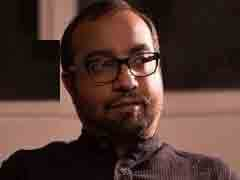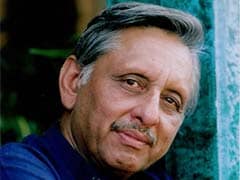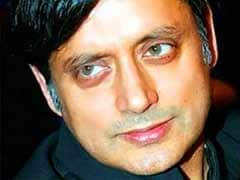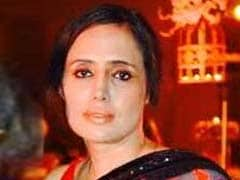Modi Ignored Advice To Make Obama Squirm. It Has Paid Off.
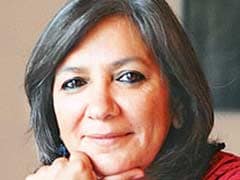
Jyoti Malhotra
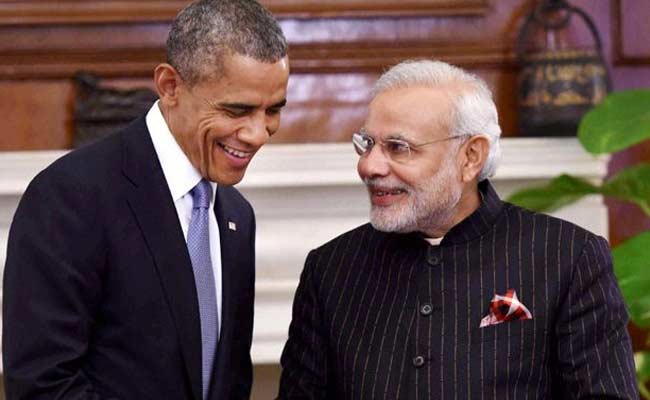
That first invitation by Obama meant that the US had at long last restored his visa, nine years after it had been taken away in the wake of criticism that Modi, then chief minister of Gujarat, had not been able to control the 2002 riots in which about 1,200 people were killed, most of them Muslims.
Some people, including a former Foreign Secretary, advised him not to go, saying he should make the US squirm for treating him so badly. But Modi sensed an opportunity and saw all the benefits that came with dealing with the world's most powerful nation.
"He never allowed his personal feelings to come in the way. He proceeded to build a relationship with the US as if nothing had happened. How is this man (Obama) going to help India, to remove poverty, he would ask. He is very good at joining the dots, at making the connections between foreign players and their utility to domestic policy," said Ashley Tellis, senior associate at the Washington-based think-tank, Carnegie Endowment for International Policy, who has known Modi for several years.
The fact that the newly-minted PM maintained a punishing schedule on that trip, despite a nine-day Navratra fast leavened only by warm water and lemon, evoked grudging admiration from none other than Vice-President Joe Biden.
The visit to the US in the coming week, in fact, brings Obama's relationship with both Modi and India full circle. When he first became President eight years ago, Obama blundered by proposing a special envoy for Kashmir, but hastily withdrew the idea under fire from Delhi. But as the US relationship with China grew more strained, Obama began to lean more and more on India's democratic leadership, even promising it a permanent UN Security Council seat.
Apart from inviting Modi to speak at the US Congress on this visit, an acknowledged rare honour, Obama is now said to be personally pulling out all the stops in pressing all 48 nations that make up the Nuclear Suppliers Group (NSG) to bend the rules to include India, without it needing to sign the Nuclear Non-Proliferation Treaty (NPT).
In conversations with several foreign diplomats in Delhi as well as with several foreign policy analysts in several world capitals, India's Prime Minister of two years comes across as having imprinted his - and therefore, India's - stamp upon the consciousness of the world.
Through the use of his extraordinary oratorical skills, the invocation of India's highly successful diaspora abroad and the single-minded determination with which he has employed the Ministry of External Affairs (MEA) in the pursuit of expanding national interest as well as his own image, Modi reminds the world of that other strong Indian leader, Indira Gandhi.
In the bad old days, the former Congress leader's sycophants had coined a particularly embarrassing term for her: 'India is Indira, and Indira is India,' they said. It seems that Narendra Modi is rapidly reaching that apotheosis.
Dmitri Trenin, one of Russia's foremost policy analysts and the head of the Carnegie Russia Centre in Moscow, confirmed the view from Moscow: "He (Modi) is a huge contrast to former PM Manmohan Singh, who was seen as doing Sonia Gandhi's bidding. Putin likes to deal with foreign leaders who are self-confident, can speak their own mind and who can deliver. Modi fully fits the bill. He can reach the stature of Indira Gandhi, a towering figure who manifests the image of a rising India - if he continues to succeed, of course," Trenin said.
But Modi's intentional juxtaposing of himself in India's image doesn't seem to matter to the world. When the Iranians told Delhi earlier this year that if it didn't move on the Chabahar port, it would be tempted to hand it over to the Chinese, Modi pushed the ministries of Finance, Petroleum and Transport to get their act together.
That resulted in the signing of the trilateral agreement with the Presidents of Afghanistan and Iran on May 23 in Tehran, a move that sat the world up. Within two weeks, en route to the US on June 4 (today), Modi was flying to Herat in western Afghanistan to inaugurate the Salma dam that India has been building at least since the late 1970s.
By putting India's money where his mouth is, and vice-versa, Modi was displaying India's potential as a player to reckon with, at least in this part of Asia.
"Chabahar may be India's response to China's activity in Gwadar, next door in Pakistan. There is no reason why China's One Belt, One Road initiative (which connects key Chinese centres across the heart of Eurasia) should be the only game in town," Trenin said.
Certainly, over the last two years, Modi has put the world on notice that India's time is coming. Whether it is beating a Japanese drum in Kyoto, checking out the circa 200 BC terracotta soldiers of China's first emperor in the company of Xi Jinping, or filling up stadiums in New York, London and Sydney with raving NRIs - which has had foreign leaders like David Cameron and Tony Abbott wondering why their citizens of Indian origin are flocking to treat an ordinary politician like a rockstar - Modi's extraordinary drive and ambition has caught the attention of the big and middling powers.
Tellis explained the difference between Modi and India's former Prime Ministers. For Modi, he said, "Foreign policy has to be anchored to the domestic reform agenda. He wants to constantly know how you can leverage the external to aid the internal."
In contrast, Atal Behari Vajpayee was so "private and personal, one never really knew what he actually thought," while Manmohan Singh was much more focused on "how he should strengthen the geopolitical agenda and eliminate the constraints that India has been struggling with for several decades," Tellis added.
But he acknowledged Modi's inheritance of both Vajpayee and Manmohan Singh's legacy, especially regarding India's standing as an equal on the high table. While the nuclear tests were conducted during Vajpayee's tenure in 1998, Manmohan Singh persuaded the US to sign not only a bilateral nuclear deal but also an IAEA waiver of India's non-NPT status.
Insiders say that Modi doesn't care to read the detailed briefs that his diplomats place in front of him, much preferring to have them brief him orally or through power-point presentations. Clearly, MEA diplomats are doing the ground work - as diplomats must everywhere in the world - leaving Modi to enthuse his compatriots worldwide with his extraordinary energy.
But Modi's oratorical skills notwithstanding, the truth is that the world has come to be more appreciative of India because it remains a pole of stability in an increasingly uncertain universe.
"When you see that Brazil is tanking, Turkey becoming authoritarian, Russia more or less undemocratic, South Africa going downhill and China increasingly aggressive, then India's 1.2 billion people seem like a lodestar on the horizon," said an analyst from Canberra, who spoke on the condition of anonymity.
In fact, when India's Ambassador to Australia Navdeep Suri titled his recent speech at the University of Queensland, "India, the last BRICS standing?" he got a huge roar of approval.
But Tellis agrees that US corporates have not made the strategic decision to invest in India, even though Modi has been wooing them on every visit and meeting every key Fortune 500 CEO who passes through Delhi. "The problem is that when you look under the radar, there are enormous opportunities, but the impression remains that India is a difficult place to do business with. Still, Modi seems serious about deepening reform, although the story has got muddied at home, with the GST and the land acquisition bill mired in domestic politics."
Modi's image certainly comes a-cropper in India's all-important neighbourhood, whether it is on the flip-flops with Pakistan, Delhi's inability to follow up with Nepal, or showing off that it carried out regime change in Sri Lanka. China, which remains unwilling to acknowledge India as a fellow Asian power with high aspirations, remains an uncertain and tough nut to crack.
Certainly, Modi must pay greater attention to South Asia. Perhaps, once he is done wooing the Americans - and on this trip, the Qataris, the Swiss and the Mexicans - he will.
(Jyoti Malhotra has been a journalist for several years and retains an especial passion for dialogue and debate across South Asia.)
Disclaimer: The opinions expressed within this article are the personal opinions of the author. The facts and opinions appearing in the article do not reflect the views of NDTV and NDTV does not assume any responsibility or liability for the same.
................................ Advertisement ................................
Opinion
MoreOpinion: China Has Helped India's Cause With TrumpMihir Sharma, Bloomberg
Thursday June 29, 2017Very little was expected in India from Prime Minister Narendra Modi's visit to the U.S., and for good reason: Modi had gone out of his way to cultivate a personal relationship with Barack Obama, including famously pouring out a cup of tea for him and the cameras when Obama visited India.
Opinion: Modi's US Speech Was Letter Perfect, Ticked Off Every BoxAshok Malik
Friday June 10, 2016Without taking recourse to the old wailing sheet and cribbing to everyone about Islamabad, Modi has devised a mechanism to shape the debate to India's advantage.
Opinion: Modi Ignored Advice To Make Obama Squirm. It Has Paid Off.Jyoti Malhotra
Saturday June 04, 2016The visit to the US in the coming week, in fact, brings Obama's relationship with both Modi and India full circle.
Blogs: कादम्बिनी के कीबोर्ड से : क्या परमाणु करार पर पीछे हटे हम?
Sunday February 08, 2015असल में परमाणु रिएक्टरों में हादसे की सूरत में जो हर्जाना होगा, वह रिएक्टर चलाने वाले को यानि ऑपरेटर को देना होगा। कानून में यह प्रावधान है कि अगर ऑपरेटर चाहे तो वह सामान और ईंधन आपूर्ति करने वाले पर हर्जाने के लिए दावा कर सकता है। लेकिन यहां पर समझने वाली बात यह है कि ऑपरेटर कौन होगा।
Opinion: Mani-Talk: Modi is Turning Us into America's New PakistanMani Shankar Aiyar
Thursday February 12, 2015In "Cold War II", battlefield could be India, writes Mani Shankar Aiyar.
Opinion: Obama Had Pointed Message for Modi 2.0Shashi Tharoor
Wednesday January 28, 2015Clear warning that PM will fail if he reverts to Modi 1.0, writes Shashi Tharoor.
Opinion: What Pakistan Makes of Obama-Modi ChemistryMehr Tarar
Tuesday January 27, 2015Acceptance of Modi's goal-oriented leadership, writes Mehr Tarar.



